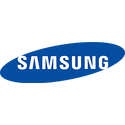
Google Announces the Pixel 8 and Pixel 8 Pro
Meet Pixel 8 and Pixel 8 Pro, engineered by Google and built with AI at the center for a more helpful and personal experience. These phones are packed with first-of-their-kind features, all powered by Google Tensor G3. And they'll get seven years of software updates, including Android OS upgrades, security updates and regular Feature Drops. Take a closer look at the new phones—everything from the beautiful design and new sensors to updated cameras.
A polished look made for your everyday
Pixel 8 and Pixel 8 Pro are elegantly designed with softer silhouettes, beautiful metal finishes and recycled materials. Pixel 8, with its contoured edges and smaller size than Pixel 7, feels great in your hand. It has a 6.2-inch Actua display, which gives you real-world clarity and is 42% brighter than Pixel 7's display. Pixel 8 features satin metal finishes, a polished glass back and comes in Rose, Hazel and Obsidian.
A polished look made for your everyday
Pixel 8 and Pixel 8 Pro are elegantly designed with softer silhouettes, beautiful metal finishes and recycled materials. Pixel 8, with its contoured edges and smaller size than Pixel 7, feels great in your hand. It has a 6.2-inch Actua display, which gives you real-world clarity and is 42% brighter than Pixel 7's display. Pixel 8 features satin metal finishes, a polished glass back and comes in Rose, Hazel and Obsidian.









































































